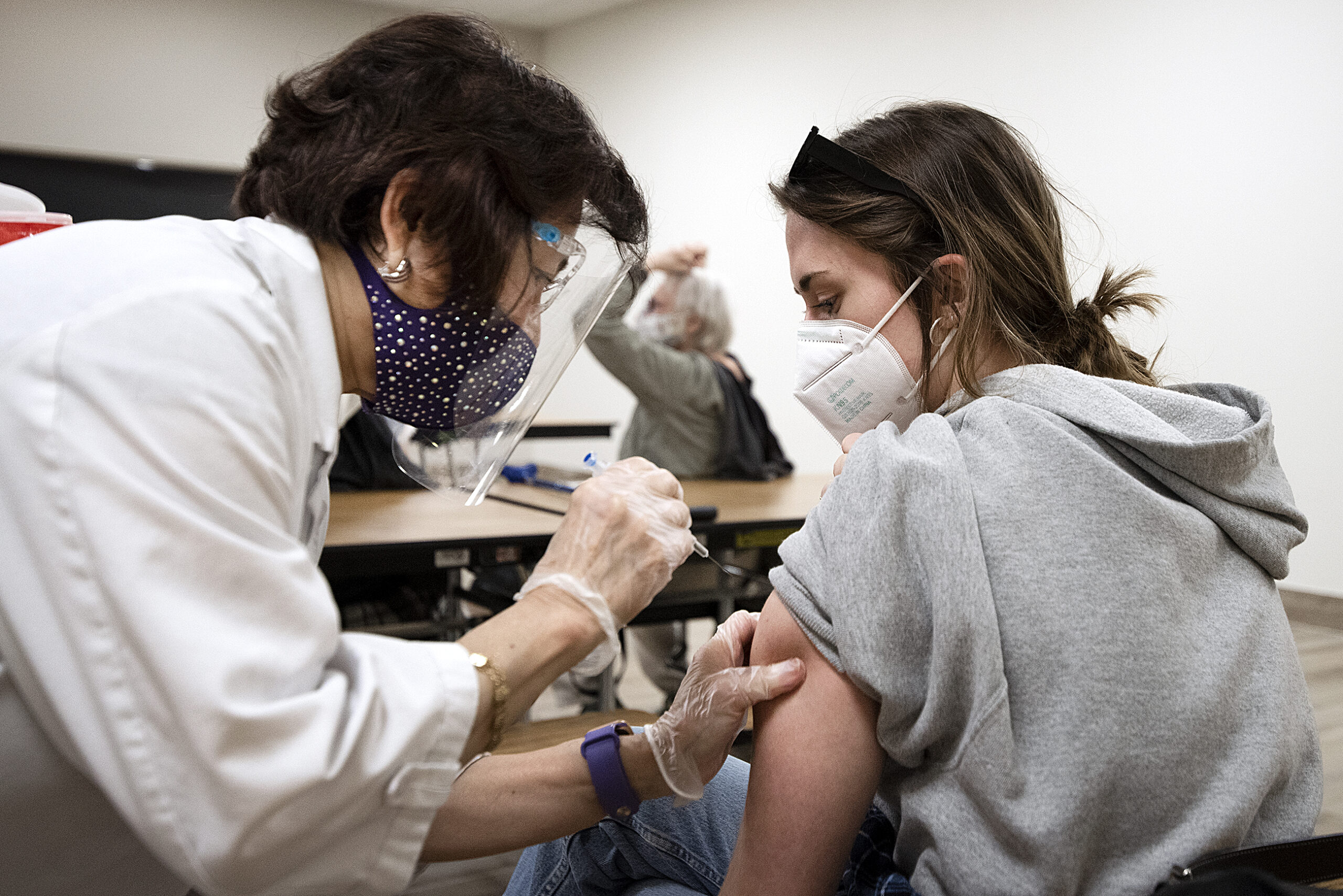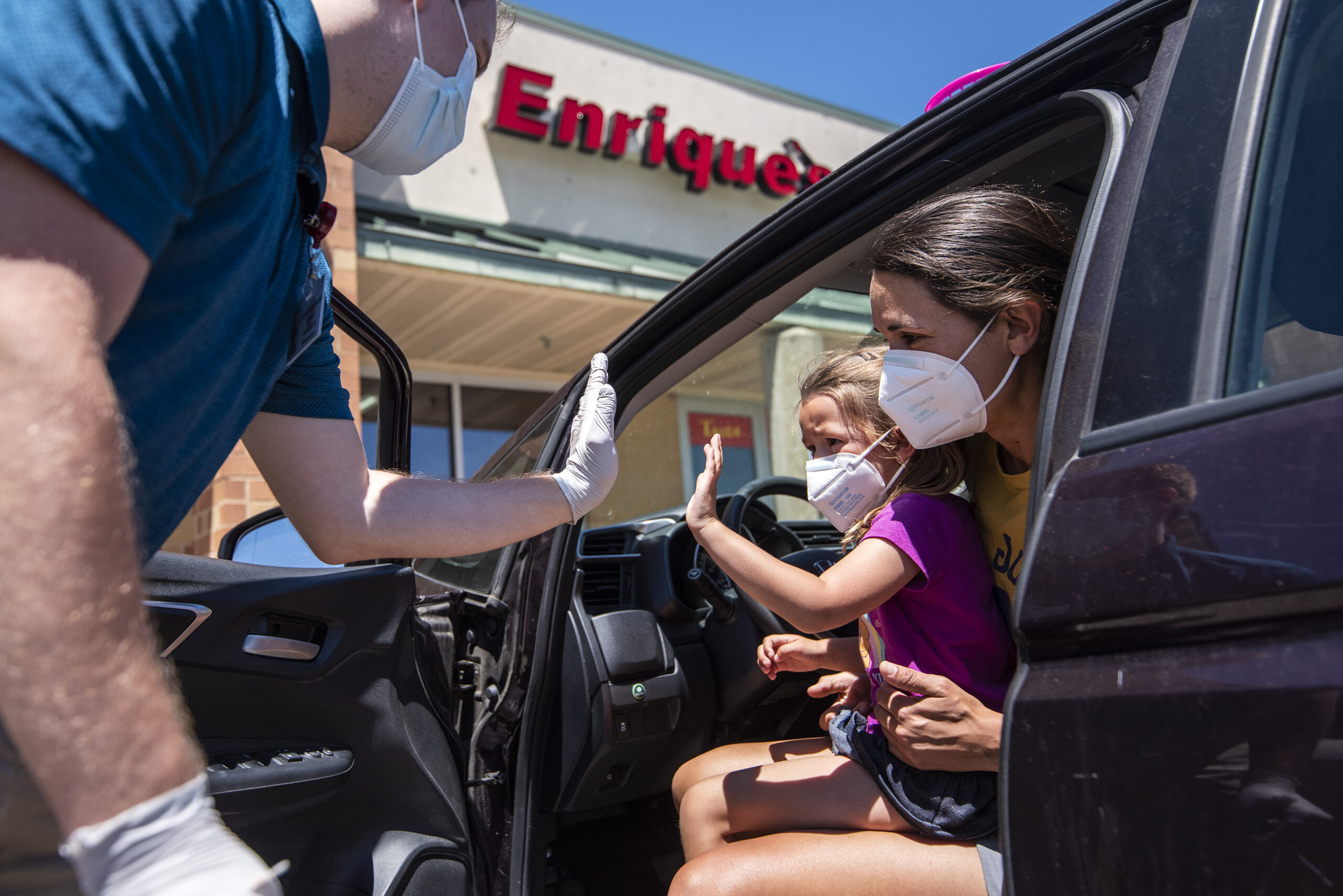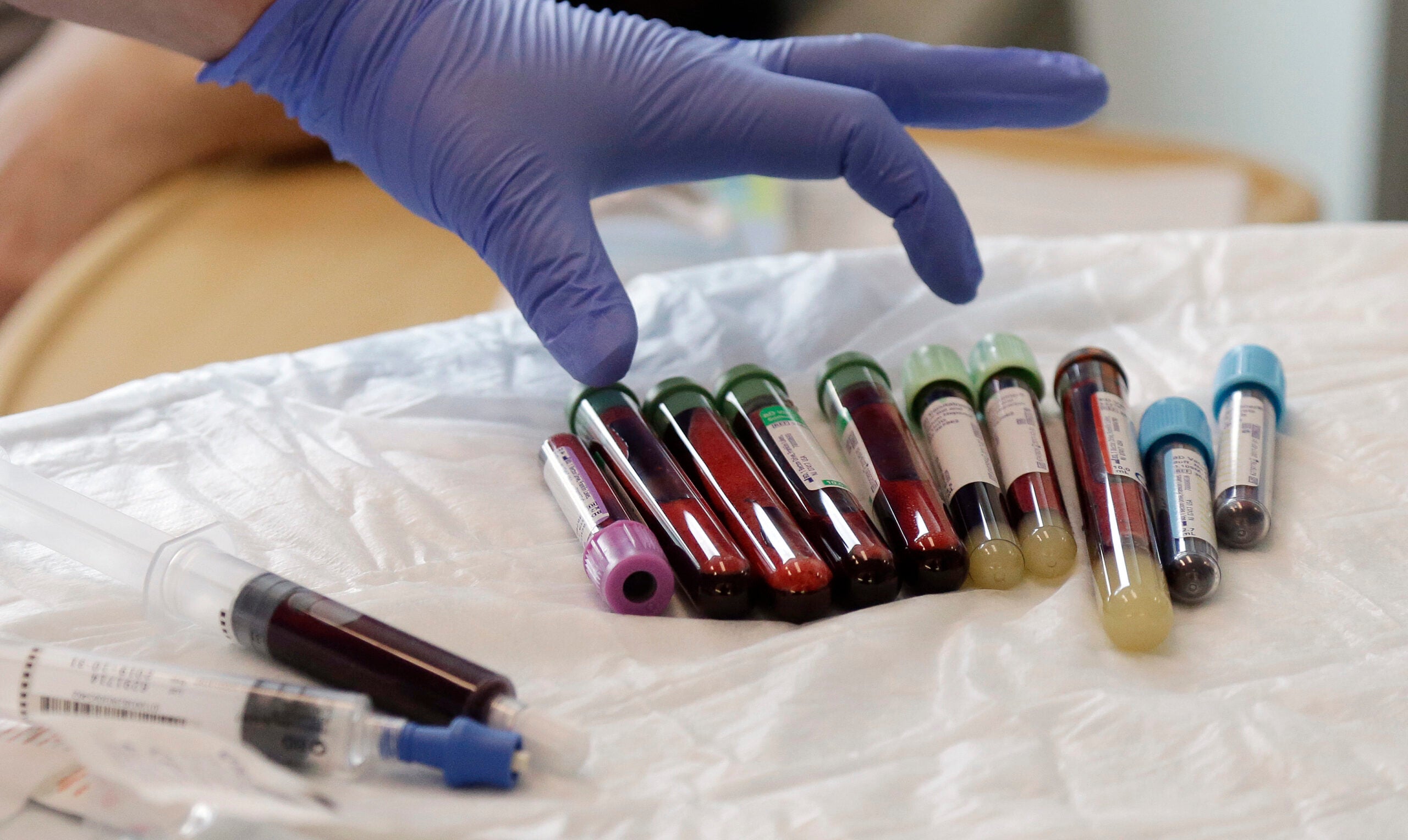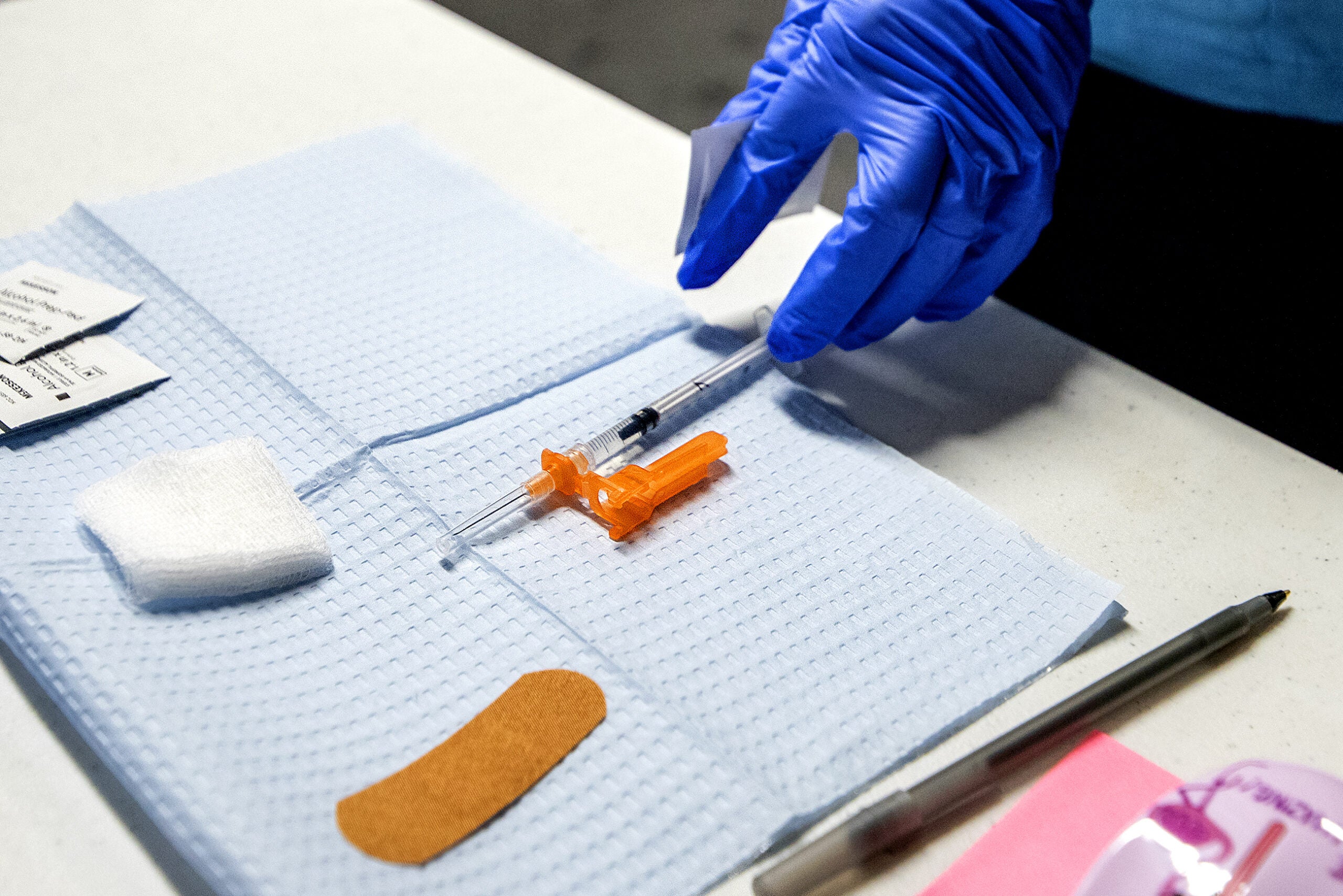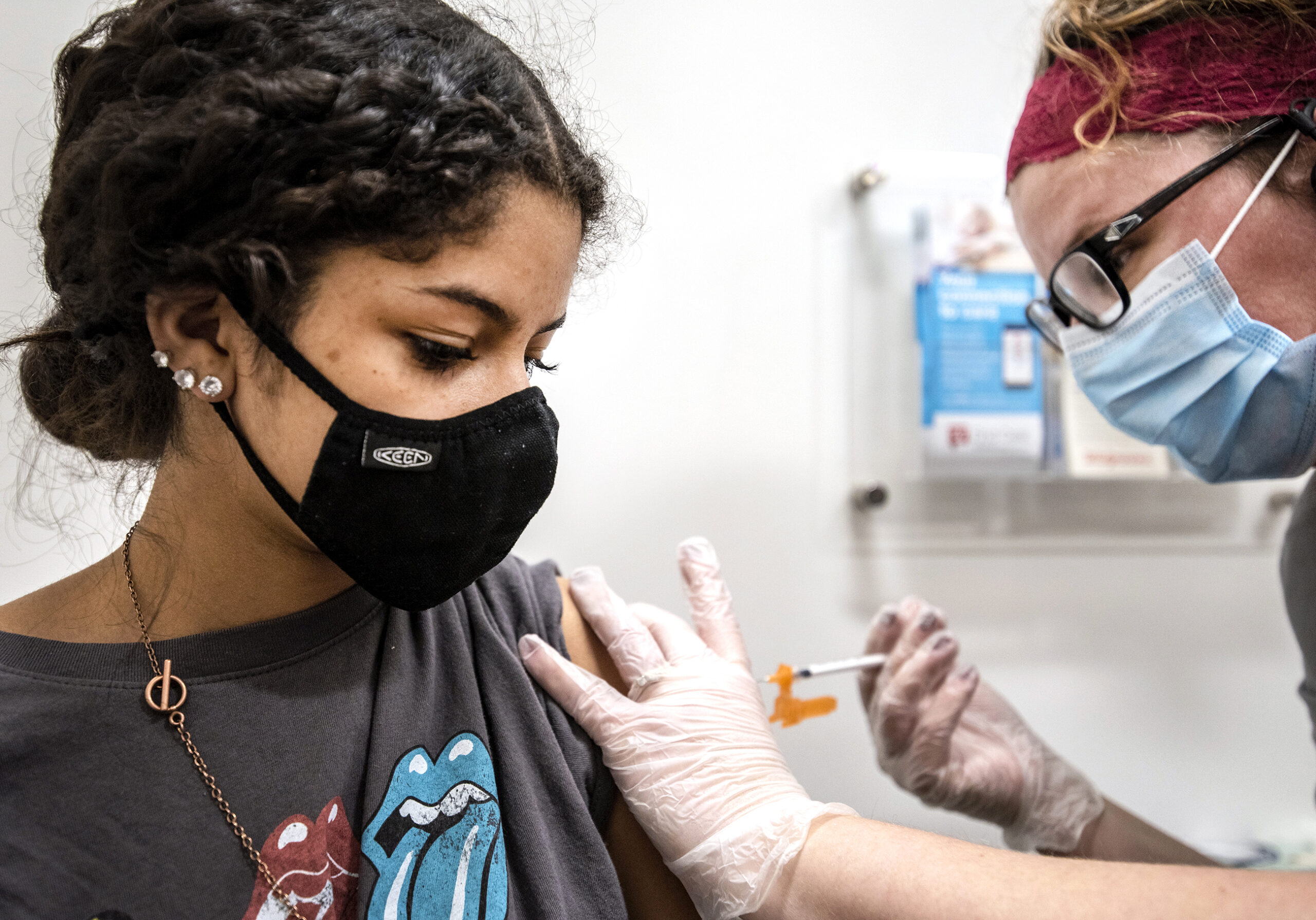Wisconsin’s land-grant universities are tapping into new federal funding to provide education about COVID-19 vaccines in rural communities.
The U.S. Department of Agriculture’s National Institute of Food and Agriculture is providing funding to land-grant universities and cooperative extension programs to provide information and improve confidence in the vaccines. The initiative will also work to make vaccines more accessible for underserved populations.
The University of Wisconsin-Madison’s Division of Extension is expected to receive $24,000 from the new program.
Stay informed on the latest news
Sign up for WPR’s email newsletter.
Amber Canto, director of Extension’s Institute for Health & Well-Being, said local extension educators in Wisconsin are trusted sources of information for their communities and can be effective messengers about the vaccines.
“One of the things we do best is connecting individuals to research and information about critical issues,” Canto said. “We have deep and trusted relationships across communities of Wisconsin and we continue to build upon those relationships in support of agriculture, but also in health.”
She said the Division of Extension has already been working to support vaccine efforts in the state by hosting webinars and providing information to community partners like early learning centers, social services and faith-based organizations.
With the new federal funding, Canto said they’re hoping to bring that outreach directly to community members through town hall meetings or being available to answer questions.
“There are things that we can do to address vaccine hesitancy, including engaging people where they are at, being empathetic to their concerns, providing accurate and timely information,” Canto said. “We also know there are other barriers to vaccination in rural areas. This might be geography and the distance to get to a vaccine, or challenges in signing up online where broadband access is limited, maybe even lack of paid time off to go get a vaccine or lack of a relationship with a healthcare provider.”
Canto said her organization is exploring different ways to address these access issues, whether it’s bringing tablets to a farm to help residents sign up for an appointment or working with the state to host pop-up vaccine clinics.
The College of Menominee Nation is also participating in the USDA program and expects to receive around $26,000 in funding.
Brian Kowalkowski, dean of continuing education, said the Menominee Tribal Clinic has already been successful in vaccination outreach with the general population. So his organization is hoping to target their efforts toward a specific age group that has a low vaccination rate in the community: 18-24-year-olds.
“Those are the individuals that we’ve been told they’re struggling to get vaccinated, and so that’s where we’re looking to bring this grant money in and hopefully utilize it to do some more work with social media and public service (announcements),” Kowalkowski said.
He said they hope to use platforms like YouTube to share testimonials from people who have gotten the vaccine. And they hope to address some of the misconceptions and misinformation about COVID-19 and the vaccine that they’ve heard anecdotally from young people.
“They may have already had COVID, they didn’t get that sick from it, so they don’t feel the need to get vaccinated,” Kowalkowski said. “You kind of feel a little invincible at that 18-24-years-old, so maybe they’re thinking, ‘Well, it’s not going to impact me, so I don’t need to get the vaccine.’ And then I think there are some other folks who are just reading on social media some of the misinformation.”
Wisconsin Public Radio, © Copyright 2024, Board of Regents of the University of Wisconsin System and Wisconsin Educational Communications Board.

